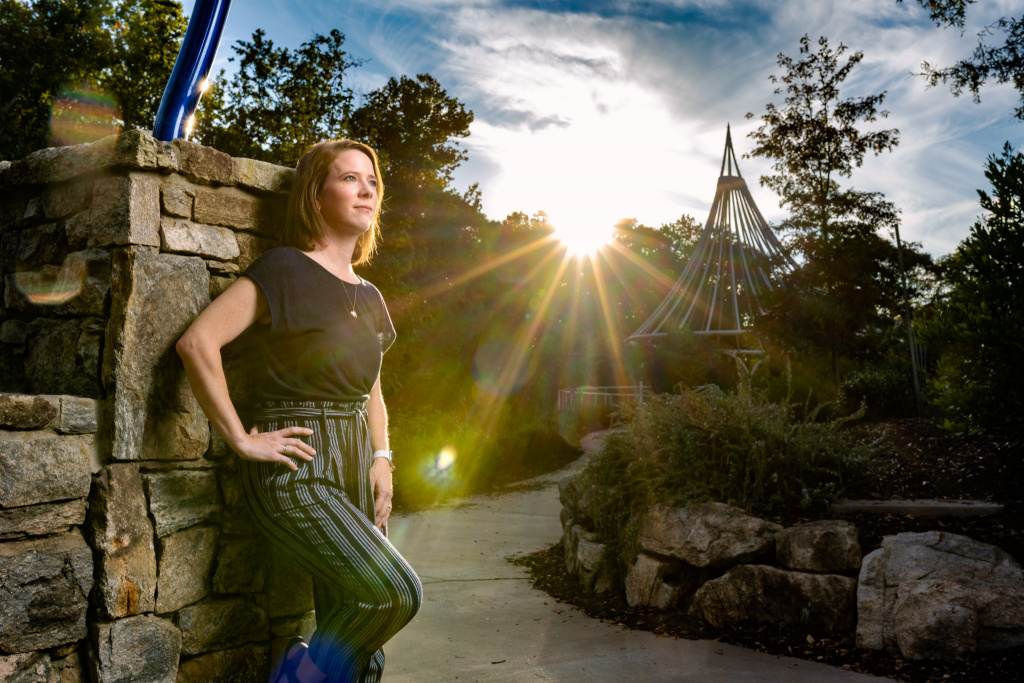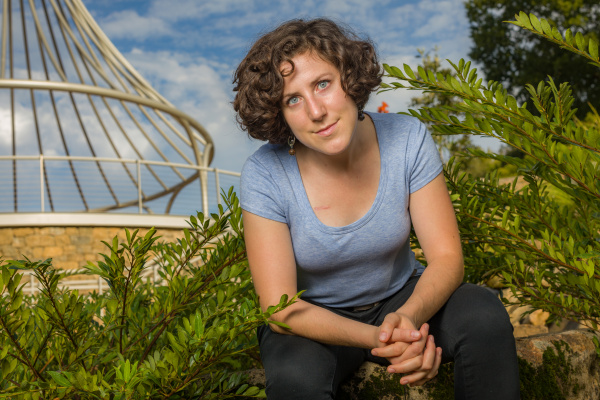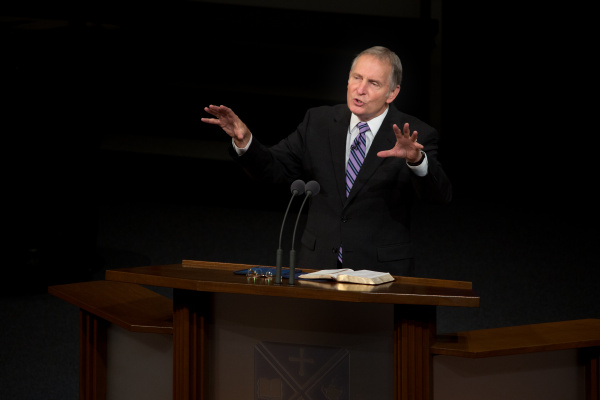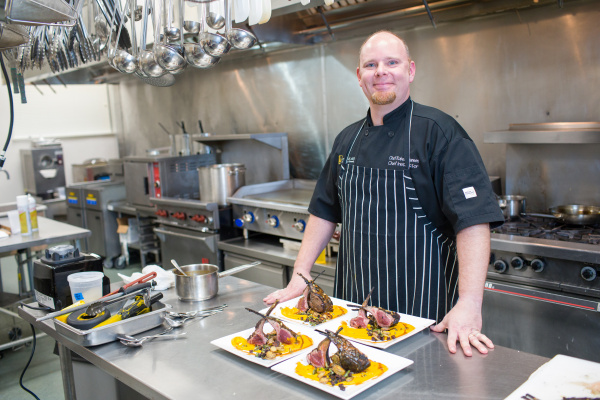In recognition of Breast Cancer Awareness Month, BJUtoday highlights BJU faculty member Brenda Hansen, breast cancer survivor.
German professor Brenda Hansen went from having a routine mammogram one day to being told two weeks later that she had cancer. “You never think it’s going to happen to you until it happens to you,” she said.
Hansen had been told it was common for patients getting their first mammograms to be called back for an additional scan. “So I wasn’t that surprised when a week later they called me back,” Hansen said.
However, she was startled when the nurse on the phone mentioned an area of concern. “I had a little feeling that she wasn’t really misspeaking there,” she said.
Hansen’s second mammogram was scheduled for within the next couple of days. While she was at that appointment, the medical personnel took her back for an ultrasound. “The doctor who examines (the ultrasounds) came in and he said, ‘We still don’t know what for sure this is.’ I think that’s just the way they say it. I think he knew what it was. I think he was just speaking carefully,” remembers Hansen. The doctor scheduled a biopsy for the next day.
“Once you’re in this system, it moves very fast,” said Hansen. The next day — Oct. 24, 2018, two days before her birthday — she received a call during her noon class, which made it difficult to return to her students. She had cancer.
Taking an Alternative Route
“It wasn’t a particularly aggressive type of cancer,” said Hansen. “That was a little bit of a relief to me. … There’s a lot of different types of breast cancer, and there are positives and negatives of each type, and the kind that I have is very responsive to treatment, and it wasn’t a super fast- growing kind. However, according to the MRI, it was very large, which was strange because until they told me exactly where it was, I couldn’t feel it.”
Hansen’s tumor was what is termed a bridging tumor. Three smaller tumors are connected to form one larger tumor. Because of the way the tumor connected, the doctors were unable to remove just the cancer. Hansen needed a mastectomy.
“(The plastic surgeon) said he’d like to get (the surgery) scheduled between Thanksgiving and Christmas. So again, very soon,” said Hansen. “They were talking about a matter of a few weeks, and the only reason it was that long was because they have to schedule two doctors, the doctor to do the mastectomy and then the doctor to do the reconstruction.”
During this time, the mother of a friend of Hansen’s who had had breast cancer reached out to let her know she had options. “One thing I will say about the cancer community — and by cancer community, I guess I kind of mean other women I know who have had cancer — is that they’re not hesitant or shy about reaching out,” said Hansen. “They know, number one, that you need them to, and you don’t even realize it yet. And number two, they have all kinds of information that they know that you wouldn’t really be able to process very well.”
This friend sent emails to Hansen with research about implants and alternatives. “She actually did the research that spared me from having to do it,” Hansen said. “She was there to tell me that there are surgeons in our state who do this other type of reconstruction, and so that’s what actually ended up making my path (take) a little bit longer because I decided that really I didn’t want to have implant reconstruction (but) this other type of reconstruction.”
Hansen ended up seeing a surgeon in Charleston, South Carolina, for her reconstruction surgery. “I counted one time,” she said. “I think we’ve made 22 trips in 18 months or something like that for the surgeries and follow-ups and kinds of things like that. (It’s) not a bad place to visit, but you kind of associate it with the surgery then.”
Recognizing the Importance of Little Things
During Hansen’s cancer journey, she came to see the value in small gestures. “Don’t underestimate the importance of what you might consider to be a little gesture,” she said. “It changed me.
“I actually remember feeling somewhat the same way after my dad died about the power of a small gesture … but then it became even much more real to me because I was home for so long after my surgery, and I couldn’t do anything. I couldn’t lift a gallon of milk. I couldn’t do anything, so I just sat at home all day every day. My whole family, they were at school, and my husband was at work, and I was alone, and I was very lonely.
“I think some people thought, ‘I don’t want to bother her,’ but I would have liked to be bothered. When I did have company or when someone (did) send a card, that meant a lot to me.
“So, don’t underestimate those little things and just being there for someone. You don’t have to have answers for them. You don’t have to have a solution to their problem. They just have to know that you were there and that you love them and that you care for them.”
Learning to Wait
“Anytime you go through something like this, it completely changes you as a person,” said Hansen. “I suppose in many ways I am the same person I was before, but inside I feel like a completely different person.” The biggest lesson Hansen believes she learned personally? How to wait.
“The whole experience for the last two years has been filled with so much waiting,” she said. “Waiting for the next appointment. Sometimes even when they’re happening fast, you feel like you’re waiting for so long. Waiting for diagnosis. Waiting for approval. Waiting for your scars to heal. Waiting for medication to arrive in the mail that you were supposed to get.
“The whole fast-paced life that I had been very used to came to a screeching halt, and that was very hard for me.”
Though learning to wait for Hansen was hard, it was also valuable. “It’s just learning that sometimes you have to wait, and there’s nothing you can do about it, and that those are the times when you know when you’re still and you’re quiet, and then God speaks to you that He teaches you about Himself. You know He’s able to teach you, ‘Just because I’m not acting right now in a way you can visibly see, doesn’t mean that I’m not acting.’ God is always acting on our behalf.
“I think that’s been the biggest change in me, just learning to wait and be still. I wasn’t a ‘be still’ kind of person, but I am now.”








